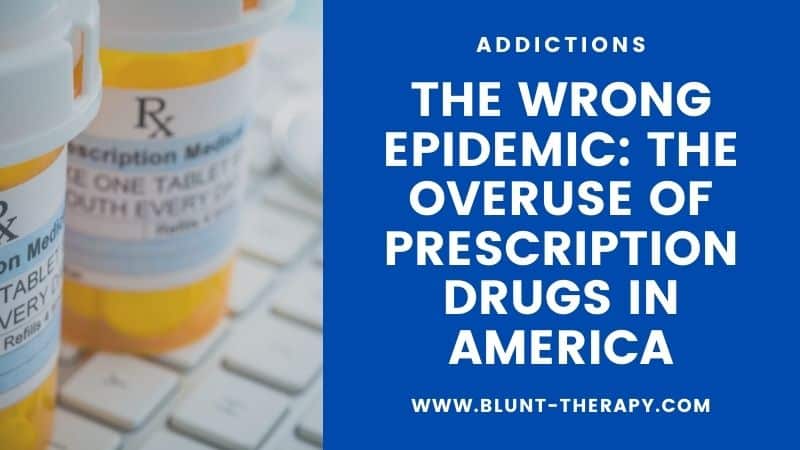Table of Contents
Affiliate link notice: As an affiliate of BetterHelp and other third-party vendors, We will receive compensation if you make a purchase using the links provided on this page. For more information, visit our disclosure page.
Last Updated on December 13, 2021 by Randy Withers, LCMHC
Narcotics Anonymous is a worldwide support program for people who struggle with alcohol and drug addiction. It was founded in 1953 and employs the same Twelve Stop Model used by Alcoholics Anonymous. They have over 61,000 meetings in 129 countries across the globe.
It has helped tens of thousands of people get and stay clean.

The Narcotics Anonymous Twelve Steps Program is free, successful, and easily accessible to the general public. There are basically X objectives that each meeting has, all of which are positive. They are as follows:
- Teach a simple and easy-to-follow program to follow to live a life free of drugs and alcohol;
- Provide its members with ongoing support and accountability.
- Help members uncover the behaviors, attitudes, and experiences that led them to abuse drugs in the first place;
- Encourage members to live by a set of spiritual principles (e.g., acceptance, honesty, trust, compassion, tolerance, and faith); and
- Show members how to be better versions of themselves, so that they can increase their quality of life and teach others a new way to live.
Sounds pretty good, right?
So why are there so many myths about it?
One of the culprits is pop culture itself. TV and movie depictions of Narcotics Anonymous Twelve Steps meetings completely ignore the traditions that define them, referred to collectively as “The Twelve Traditions.” These Traditions essentially govern how the entire organization operates — and by extension their meetings. Members consider them sacred.
So whether the meeting is in Spokane, Washington or Helsinki, Finland, meetings are all run in the same basic way. This is how I can state with confidence that movies and TV almost always get it wrong. Usually, they are portrayed as the butt of a joke, but the bottom line is that these meetings save lives and inspire hope in people whose lives have been utterly devastated by the scourge of addiction.
Here are 6 myths that movies and television portray as fact with their ridiculous and even dangerous depictions:
Myth 1: Narcotics Anonymous is only for hardcore addicts.
In the 1998 movie Half Baked, Dave Chappelle’s character attends a meeting where he is booed off the stage because his drug of choice is marijuana. More recently, AMC’s Breaking Bad depicts Jesse attending a similar meeting that is clearly populated only by heroin and meth addicts.
There are similar scenes in two different Showtime series, Nurse Jackie, and Dexter. There are plenty of other examples. The implication here is that Narcotics Anonymous is only for heavy drug abusers, and the insinuation is that more mainstream substances like marijuana are somehow not addictive.
While the severity of addiction may vary from drug to drug and from user to user, the fact is that people from all creeds and colors abuse all sorts of different drugs.
In a membership study conducted by NA in 2013, participants were asked which drugs they had used habitually. 59% said Crack; 35% said Opiates, which includes heroin. Alcohol (90%) and Cannabis (68%) were the top two most commonly used drugs.
Booze and weed, it seems, are what bring most people to their meetings.
These numbers directly contradict the messages we get from the media. While I get that Half Baked is a comedy, the reaction Dave gets from the other addicts in the room is the most unbelievable thing about that entire movie.
Myth 2: You give a speech at your first Narcotics Anonymous meeting
Newcomers — those who are attending their first meeting — are considered to be the most important person in the room. It says so in the Literature. So when Chapelle is booed off the stage for “only” being addicted to marijuana, or when Dexter is forced to tell his story, what you are seeing just simply does not happen.
The last thing these meetings want to do is scare off new members, and making someone give a speech at their first meeting is a great way to do just that.
Some meetings do have speakers, but this is considered a voluntary honor and is usually reserved for members with a significant amount of clean time. But even if that weren’t true, the Twelve Traditions are very clear about who can attend meetings. Tradition 3 states: “The only requirement for membership is a desire to stop using.” Dave Chapelle is welcome to attend.
If you re-read Tradition 3, you might notice two things. First, it does not mention drugs. Second, it says the only requirement is a “desire” to stop using. There is nothing in the Traditions about having to speak from a podium, nor does any of the literature suggest that there is some sort of drug hierarchy.
And speaking of drugs…
Myth 3: It has everything to do with drugs.
Any number of movies and TV shows depict Narcotics Anonymous meetings as places where drug addicts gather to talk about drug use. I can understand why people would think this — drug use, after all, is the common denominator. But once you start attending meetings, you learn very quickly that drugs are not the real problem. It’s also not cool to talk about them.
When you are trying to break an addiction to any drug, you learn to avoid triggers. Triggers can be anything, depending on the person.
Obvious examples include the drugs themselves, the dealer who sold you the drugs, and the places where you used them. Often, even talking about using drugs can be a trigger.
It is for this reason that drugs are not discussed nearly as much as one might think.
When any movie or TV show depicts a character speaking openly about drugs in a meeting, I cringe. I’m certain the writer has never been anywhere near an actual meeting.
It would be like a group of combat veterans sitting in a room explaining to one another what it’s like to be in combat. There’s no point. Every person in the room already knows what you’re going to say. You might have one or two blowhards who love to tell war stories, but they are the exception, not the rule.
The Narcotics Anonymous Twelve Steps Program is about living in a world where you do not use drugs as a coping mechanism. People do talk about their struggles to stay clean, but so many discussions center on the realities of life that we all face — job issues, problems with children, a friend who is sick or dying.
These types of life events are much harder for a recovering addict because many of them have no idea how to deal with problems without using drugs. Meetings become more about the solution and less about the past. And those members with clean time share their “experience, strength and hope” to the younger members, and they talk about how they turned their life over to a Higher Power.
The concept of a Higher Power, which is the backbone of all 12-Step programs, is the genesis of another myth that just won’t seem to die:
Myth 4: Narcotics Anonymous is a religious organization.
Christians, Jews, Muslims, Atheists — you will find them all at these meetings. What you will not find is an actual Narcotics Anonymous meeting using religious texts in any way. Many Churches do have support groups based on the Twelve Step model, but these are not official meetings, per se. You will not listen to readings from the Bible, or the Torah, or the Koran.
Individual members may talk about their religious faith, but the organization is very clear about this in their literature. Their Tenth Tradition even states that Narcotics Anonymous “has no opinion on outside issues,” and religion is definitely an outside issue.
Alcoholics Anonymous has its Big Book. Narcotics Anonymous has the Basic Text. If anything, those two books are the Bibles of those respective organizations. And as far as God goes, He is mentioned throughout the literature, but God — or a Higher Power — is not clearly defined the way it is in organized religion.
Instead, members can essentially select what or who they will choose to call their “Higher Power.” For some, God may literally be the God of the Bible; for others, God is an acronym that stands for Good Orderly Direction.
You might be wondering why they even talk about a Higher Power in the first place. There is a good reason. The idea is that addiction, as a force, is something that we cannot face by ourselves.
To fight our addiction, we must enlist the help of a Higher Power, as we cannot do it alone. The Higher Power, then, is whatever helps the addict get and stay clean.
In the end, it’s just one addict helping another that makes the program work. Which leads us to another pervasive myth about NA:
Myth 5: Professionals run Narcotics Anonymous.
Several TV shows, including Nurse Jackie and Breaking Bad, depict Twelve Step meetings as being run by mental health clinicians — experts in the field of addiction. While it is true that hospitals and agencies have support groups that model themselves Twelve Step programs, actual meetings DO NOT have professionals running them.
Once again, their Literature is very clear about this issue. The Tenth Tradition says they “should forever remain nonprofessional.” In other words, nobody is in charge. Meetings do have a chairperson, but their job is to call on people who want to share, welcome newcomers, and make coffee. Anything more than that is really pushing it.
There is nothing wrong with attending a group session run by a psychologist or counselor. It’s just not a Narcotics Anonymous meeting.
And once again, there’s a good reason for this. In the Basic Text, it mentions that many of the members had tried religion, psychiatry, medicine, all to no avail. It does not want to associate itself with any form of professional organization, because of the stigmas they sometimes carry. It is a support group, plain and simple.
The only professionals in the room are addicts themselves, there for the same reason as anyone else.
The closest thing The Narcotics Anonymous Twelve Steps Program has to a counselor-client type relationship is the one a member has with their sponsor. A sponsor is someone who has been around the program longer than you, preferably worked all or most of the steps, and has something that you want — namely, their “brand” of recovery.
We all have different styles, and recovery is no different. Addicts pick sponsors to guide them through the Steps and to be their role model as they go through the process of recovery. Which leads us to our last myth:
Myth 6: Sleeping with your sponsor is normal.
Showtime’s Dexter was an engrossing and well-written TV show with a curious twist. Dexter, the main character, is a forensics expert for the Miami Police Department and moonlights as a serial killer who hunts other serial killers.
As a fan of the show, I could accept that premise, as far-fetched as it was. But of all the bizarre things that happen in the 8-year run of Dexter, none of them are as stupid as the show’s depiction of sponsorship in Narcotics Anonymous.
Dexter starts attending meetings for his addiction to heroin, at the behest of his fiancé Rita. Dexter is not addicted to heroin but to serial killing, but for some reason, Dexter admits to using heroin, so he ends up in Narcotics Anonymous.
Shortly afterward, he meets up with a brunette bombshell named Lila who promptly becomes his sponsor. Rita is not wild about this pairing, and for good reason. They have one fight, and Dexter heads over to Lila’s house, and they end up in bed.
Rita has good reason to be upset. First, Lila is a gorgeous predator who is clearly attracted to Dexter. And second, the sponsorship relationship has rules. Opposite sex pairings, while not forbidden, are actively discouraged, for exactly this reason.
It’s not like it never happens. But Dexter portrays it as the norm, which is as dumb as it is insulting to all the people struggling to get clean.
Narcotics Anonymous offers several recommendations to newcomers (like Dexter) — one of them is no relationships for a year. So right off the bat, Dexter’s got a female sponsor, and he’s sleeping with her.
That’s careless writing. The show doesn’t even attempt to make their relationship seem unusual. It is.
Final Thoughts
Unless you have been to a Narcotics Anonymous Twelve Steps meeting, you probably have no idea what they are really like. That’s true of most people, so don’t feel too bad.
But ask yourself this: do you know someone who is struggling with a drug or alcohol addiction? Are you yourself the one who is suffering?
Drug and alcohol abuse is a worldwide epidemic, affecting hundreds of millions of children, adults, and families. There’s a good chance that at least one person in your life has a problem with drugs.
What would you do if that person came to you and asked for help? You want to help them right?
If the only information you have is the garbage that media feeds you, you are not able to give good advice. Addiction ruins lives, families, careers, and marriages. And it can kill you dead. Myths do nothing but harm those who need help.
References and Further Reading
- Narcotics Anonymous World Services
- Narcotics Anonymous
- What to Know About the Narcotics Anonymous 12-Step Program
- Narcotics Anonymous Meetings Can Help Drug Addictions










Hi there! Such a wonderful post, thank you!
NA saved my life. If you think you have problems with drugs, attend to a NA meeting today. You wont regret.
Glad it worked for you. Keep coming back!
Well said!!! This has always bothered me. I do seem to remember a Jeff Bridges movie depicting AA pretty accurately, though I don’t remember for sure.
Hey, thank you very much for your feedback! Clean and Sober with Michael Keaton does as well if I’m not mistaken.